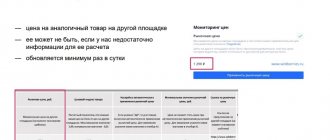1. Restrictions on military service are imposed on convicted military personnel performing military service under a contract for a period of three months to two years in cases provided for by the relevant articles of the Special Part of this Code for committing crimes against military service, as well as convicted military personnel performing military service under contract, instead of corrective work provided for in the relevant articles of the Special Part of this Code. 2. From the monetary allowance of a person sentenced to military service restrictions, deductions are made to the state's income in the amount established by a court verdict, but not more than twenty percent. While serving this sentence, the convicted person cannot be promoted in position or military rank, and the term of punishment is not counted towards the length of service for the assignment of the next military rank.
The right to silence in the law of the Russian Federation
Most people, having legal knowledge at the everyday level, understand the meaning of Art. 51 of the Constitution of the Russian Federation based on films produced in the USA. The phrase “you can remain silent; everything you say can be used..." is familiar to many. In foreign law, this provision is called the “Miranda rule” and implies that any information obtained from detainees before they are (orally) explained the procedural rights cannot be used in court as evidence. Therefore, they try to clarify them immediately.
But in Russia, the “Miranda rule” does not apply, and people who do not answer any questions from law enforcement officials often act to their detriment. They have the right not to report information that will harm them personally or their loved ones, but they cannot remain completely silent.
Commentary on Article 51 of the Criminal Code of the Russian Federation
1. The content of the punishment in the form of a restriction on military service consists of a restriction on the payment of a military personnel and restrictions in his career. A military service restriction may be imposed on a soldier serving under a contract for committing crimes against military service. At the same time, this type of punishment cannot be applied to a soldier serving under conscription. Restrictions on military service may be imposed instead of correctional labor, but only if they are provided for in the relevant article of the Special Part of the Criminal Code. For example, if a serviceman is convicted of deliberate destruction of someone else’s property, provided for in Part 1 of Art. 167 of the Criminal Code, the sanction of which contains correctional labor for a period of up to one year, the court may impose a restriction on military service for the same period instead of correctional labor. Control over the execution of the punishment in the form of a restriction on military service is assigned to the commander of the military unit, who is obliged, within three days after receiving a copy of the sentence and the order for its execution, to issue an order establishing the procedure for the execution of the sentence, which is notified to the court in the next three days, passed the sentence. A copy of the verdict is also sent to the court. The full procedure for executing a sentence in the form of a restriction on military service is specified in Art. Art. 143 - 148 PEC.
2. The peculiarity of this type of punishment is that from the monetary maintenance of the convicted person, a deduction is made to the state income in an amount not exceeding 20%; While serving a sentence, a convicted person cannot be promoted in position or military rank, and the term of punishment is not counted towards the length of service for the assignment of the next military rank. If, taking into account the nature of the crime committed and other circumstances, a convicted serviceman cannot be retained in a position related to the management of subordinates, he, by decision of the relevant commander of the military unit, is moved to another position, both within the military unit and in connection with a transfer to another unit or locality, of which the court that passed the sentence is notified.
Prohibition of self-incrimination
The privilege against self-incrimination is an important component of Art. 51 of the Constitution of the Russian Federation. It is separately prescribed in the main codes - the Code of Criminal Procedure, the Arbitration Procedure Code, the Code of Administrative Offenses and the Code of Civil Procedure of the Russian Federation.
It is worth noting that the prerequisites for witness immunity appeared in England in the 12th century, when those suspected of heresy were forced to take oaths ex officio. In the modern world, this rule is the most important principle of justice. It receives special attention in the USA, Australia, Germany, Canada and the European Union. But the procedural implementation of the privilege against self-incrimination varies depending on the system adopted in the state.
1. In countries of common (case) law, if the suspect agrees to testify, then he is questioned as a witness. Accordingly, he may be held accountable for subsequent refusal to testify or reporting knowingly false information.
2. In the countries of the continental system (including the Russian Federation), a suspect or accused who refuses to testify or gives false information is not held accountable. He is believed to be acting within the framework of the defense against self-incrimination.
The right to refuse testimony is not only related to the story of a specific offense. A person may not provide any information about himself, which may subsequently be used as evidence in criminal proceedings.
About Article 51 of the Criminal Code of the Russian Federation: the right not to testify against oneself and one’s loved ones is a stopcock
I constantly explain at seminars and discussions what Article 51 of the Constitution is and what its practical essence is. I’ll make a reservation, as I always do: the right not to testify against yourself and your loved ones (that’s exactly what this article sounds like) is a stop valve. Need a stop valve on a train? Yes. Can I use it instead of standard braking systems? No.
In the book “The Innocent on Trial. Instructions for protecting your rights” I touch on this topic: “It is important to determine your status. For example, you can be a witness in a case of an administrative offense, a person in respect of whom a protocol on an administrative offense is being drawn up, an interrogated person as part of an operational accounting case, a witness, a victim, a suspect or an accused in a criminal case. It is necessary to understand that in all cases you have the right to use the help of a professional defense attorney and request to invite a lawyer. In this case, subtleties arise.
1
If administrative or criminal prosecution is carried out against you (a protocol of an administrative offense has been drawn up against you, you are being interrogated as a suspect or accused), there is no need to refer to the popular Article 51 of the Constitution of the Russian Federation. Testifying is your right. You may refuse to testify without giving reasons. Likewise, you may not refer to Article 51 of the Constitution of the Russian Federation in other cases if you have expressed a desire to use the help of a lawyer.
This is important for the reason that the very content of Article 51 of the Constitution of the Russian Federation has an implication that is clearly interpreted by law enforcement officers - this is a refusal to testify against oneself and one’s close relatives. Case in point: “The corpse of a teenager with multiple stab wounds and signs of sexual assault was found in your building. Tell me, did you commit sexual acts against him and did you commit his murder?” The answer: “I refuse to testify against myself” sounds extremely ambiguous in this context.
The second subtlety is calling a specific lawyer. If you express an abstract need to provide you with a lawyer, one will be provided to you immediately. This will be an appointed lawyer, of whose integrity one cannot be sure. At the same time, his signature on documents drawn up with your participation legitimizes them as much as possible. Do not expect that a change in testimony in the future will negate the original one if it was given with an appointed lawyer. Therefore, you need to request a specific lawyer with whom you have an agreement to provide you with such services if necessary. It is absolutely normal in the conditions of modern Russia to have one or two trusted lawyers in touch who will help you.”
Let me summarize the meaning. It doesn’t matter in what capacity you are being interrogated, and in general whether it is a survey or an interrogation, you can always, without refusing to give evidence in general, refer to the need for participation in the procedural action of a lawyer indicating his data and refrain from any answers to questions until his arrival and consultations with him. No reference to Article 51 of the Constitution is required. If you are a suspect or accused, it is your right to testify. You may not give them at all without explanation.
Important: reference to Article 51 of the Constitution is a refusal to testify. I very, very doubt that refusal to interpret the circumstances or present the facts can be considered a serious defensive position. If only as an exception to the rule. And certainly, refusing to testify in court under the condition of not admitting guilt has never benefited anyone. On the contrary, this position makes further struggle practically impossible, especially if (as is often the case in such cases) the defense was passive.
It is sometimes objected to me that in civilized countries, refusal to testify does not serve as a hidden admission of guilt. But, excuse me, what should a judge do if, for example, he has a case with three police officers testifying that a man hit one of them, but the man himself does not testify? Let us imagine that the judge is exclusively independent and even liberal. What should he evaluate as a counterbalance to the prosecution’s arguments if the defendant himself is silent and there is no other evidence in the case?
Well, I’ll say it off the record. I wouldn’t have to convince anyone if those being persuaded heard once how prosecutors sigh with relief when investigators, before arresting or extending their detention, quietly say to them in the corridor: “The villain on 51st...”. And how good it is for prosecutors and judges when a defendant in court silently waits for a verdict, and cannot be told.
2
Original on the author's Facebook.
Testimony against spouses and relatives
The list of persons against whom you can refuse to testify is given in paragraph 4 of Art. 5 Code of Criminal Procedure of the Russian Federation. It includes:
- Spouses are persons with whom the marriage is registered in the civil registry office.
- Parents or adoptive parents.
- Children, including adopted children.
- Relatives, including half- and half-brothers, brothers and sisters.
- Grandchildren.
- Grandparents.
The list is closed and applies to all types of production - a similar list is given in other codes of the Russian Federation. The big omission is that it does not include stepfathers, stepmothers, and cohabitants (common-law spouses). In criminal proceedings, witnesses have the right to use clause 3 of Art. 5 of the Code of Criminal Procedure of the Russian Federation on the concept of “close people” (persons who are related, or persons whose well-being is dear to the witness due to personal attachment). Formally, the law indicated by the Constitution of the Russian Federation, Article 51, can also be applied to them.
Everything about criminal cases
Go to the text of the Code of Criminal Procedure
Url Additional information:
Obligation of a lawyer
- Part 1 51 Code of Criminal Procedure
list of situations when the participation of a defense attorney is mandatory:
- Clause 1 Part 1 51 Code of Criminal Procedure
if there is no refusal from the defender
- clause 2 part 1 51 Code of Criminal Procedure
minor age of the accused
- clause 3, part 1 51 of the Code of Criminal Procedure
psychophysical disabilities
— clause 3.1 part 1 51 Code of Criminal Procedure
if the case is considered in the absence of the defendant
- clause 4 part 1 51 Code of Criminal Procedure
the accused does not speak Russian
- clause 5 part 1 51 Code of Criminal Procedure
The sanction of the article provides for a punishment of over 15 years
Special forms of criminal proceedings
— clause 6, part 1 51 of the Code of Criminal Procedure
a defense attorney is required in a jury trial
— clause 7, part 1, 51 Code of Criminal Procedure
a defender is required in a special order
- clause 8 part 1 51 Code of Criminal Procedure
a defense attorney is required during an inquiry in an abbreviated form
Appointment procedure
- Part 2 51 Code of Criminal Procedure
moment of provision of mandatory defense counsel
- Part 3 51 Code of Criminal Procedure
if a defense attorney is not invited, they are required to provide one
Lawyer by appointment
State Advocate
, appointed in accordance with
Part 3 51 of the Code of Criminal Procedure
Article 51 of the Code of Criminal Procedure. Mandatory participation of a defender
Url Additional information:
— clause 4 part 2 389.17
consideration of the case without a lawyer, cancellation on appeal
1) The participation of a defense attorney in criminal proceedings is mandatory if:
1). the suspect or accused did not refuse a defense lawyer in the manner prescribed by Article 52 of the Code of Criminal Procedure;
Url Additional information:
— clause 8
Plenum No. 1 mandatory participation of a minor’s defense attorney
— clause 12
Plenum No. 41 mandatory participation of a lawyer during detention
2). the suspect or accused is a minor;
Url Additional information:
— 438 Code of Criminal Procedure
obligation of a defense attorney in proceedings on coercive measures
— clause 12
Plenum No. 6 mandatory participation of a lawyer during medical measures
- paragraph 15
Plenum No. 29 shortcomings requiring the mandatory participation of a lawyer
3). the suspect or accused, due to physical or mental disabilities, cannot independently exercise his right to defense;
3.1) the trial is conducted in the manner prescribed by Part 5 247 of the Code of Criminal Procedure;
4). the suspect or accused does not speak the language in which the criminal proceedings are being conducted;
5). a person is accused of committing a crime for which punishment may be imposed in the form of:
- imprisonment for a term exceeding 15 years,
- life imprisonment,
- or the death penalty;
Url Additional information:
-
clause of
Plenum No. 23, obligation of a lawyer for a jury trial
-
clause 2, part 2 30 of the Code of
, criminal cases considered by a jury
6). a criminal case is subject to trial by a jury;
Url Additional information:
- Part 2 316 Code of Criminal Procedure
in special cases, the participation of a lawyer is mandatory
7).
the accused filed a petition to consider the criminal case in the manner established by Chapter 40 of the Criminal Procedure Code;
8). the suspect filed a request to conduct an inquiry in a criminal case in an abbreviated form in the manner established by Chapter 32.1 of the Criminal Procedure Code.
2) In the cases provided for in clauses 1 - clause 5 of part 1 of this article, the participation of a defense attorney is ensured in the manner established by part 3 of 49 of the Code of Criminal Procedure;
and in the cases provided for in clauses 6 - clause 8 of part 1 of this article,
- from the moment at least one of the accused files a petition for consideration of a criminal case by a court with the participation of a jury or a petition for consideration of a criminal case in the manner established by
Chapter 40 of the Criminal Procedure Code ;
- or from the moment the suspect submits a petition for criminal proceedings in the manner established by Chapter 32.1 of the Criminal Procedure Code.
Url Additional information:
- paragraph 14
Plenum No. 29 You cannot choose a free lawyer
Lawyer by appointment
State Advocate
, appointed in accordance with
Part 3 51 of the Code of Criminal Procedure
Recording of testimony
Recording readings
with the help of a lawyer to prevent their refusal
3) If, in the cases provided for in Part 1 of this article, a defense attorney is not invited by the suspect, accused, his legal representative, as well as other persons on behalf of or with the consent of the suspect, accused, then the inquiry officer, investigator or court ensures the participation of the defense attorney in criminal proceedings .
Return to the text of the Code of Criminal Procedure
Seek advice
Guarantees against coercion
The use of actions (threats, blackmail) to force one to testify is a criminal offense under Art. 302 of the Criminal Code of the Russian Federation. It is assumed that any information about the circumstances of a dispute or crime must be given voluntarily, with full understanding of the consequences of what is said. This principle is not formally stated anywhere, but the European Convention implies it at the heart of the very concept of fair justice.
In Russia, it is precisely with guarantees against coercion that the practice of clarifying Art. 51 of the Constitution of the Russian Federation before drawing up all procedural documents within the framework of criminal proceedings and trials.
The Constitution of the Russian Federation (Article 51, the interpretation of which provides for the right to absolute protection from self-incrimination) formally makes it impossible to confess. After all, in essence this is a violation of witness immunity.
For such cases, the Supreme Court of the Russian Federation indicated that the admission of guilt by the accused or suspect is not testimony and does not require the participation of a lawyer. In practice, the investigative authorities, before drawing up the appropriate protocol on confessing something, explain to the person (against signature) the provisions of Art. 51 of the Constitution of the Russian Federation.
What evidence can you avoid giving against yourself, your spouse and close relatives?
To correctly understand your rights, you need to know what kind of testimony you can not give - this is testimony against yourself, your spouse or close relatives.
During the interrogation, the investigator (interrogating officer) and the court are obliged to explain all rights. But, as a rule, everything is limited to just listing them. Unfortunately, if you signed the protocol under the explanation of Art. 51 of the Constitution of the Russian Federation, this will mean that everything is clear to you. In this case, agreeing to testify may lead to a worsening of your position or the position of the person about whom the testimony is given. On the other hand, an unjustified refusal to testify may lead to criminal liability.
Testimony against yourself, a spouse or close relatives is testimony about any circumstances that directly or indirectly concern you and other specified persons. But, as a rule, we are talking about communicating information that could harm a person in some way. For example, create preconditions for suspicion of a crime or other offense, or even worse - become a reason for bringing charges and justifying them. Such evidence must be treated with the utmost care.
Fortunately, Russian criminal law practice is such that the rights provided for in Art. 51 of the Constitution of the Russian Federation are interpreted quite broadly - as the right to silence. But you need to understand that this right still has limitations.
Limitations of witness immunity
It is very important to understand the possible applications of this standard. Article 51 of the Constitution of the Russian Federation is limited to several prohibitions provided for by the current law and law enforcement practice.
- The suspect (accused, witnesses) is obliged to take part in investigative activities that require his activity (confrontation, examination, identification).
- Obtaining, including forced, samples of blood, urine, exhaled air, and voice samples from participants in the process for further use in evidence. The need for these actions is confirmed by the Constitutional Court of the Russian Federation.
- It is possible to interrogate other people about the circumstances and situations that have become known to them from the person who has taken advantage of witness immunity, for the subsequent use of the received information in the evidence base.
- The law of the Russian Federation (Article 1.5 of the Code of Administrative Offenses of the Russian Federation) establishes exceptions to the presumption of innocence. In some cases, a person is obliged to prove his innocence. In European Union countries, this rule applies to car owners who are required to prove their innocence of violating traffic rules.
Right to refuse assistance
Article 51 of the Constitution of the Russian Federation, comments to which are used in law enforcement practice, also implies actions other than refusal to testify. In particular, its content includes the right not to assist in the criminal prosecution process. It includes:
- Refusal to provide any explanation or information.
- Confession (admission of guilt). If a suspect refuses to confess to a crime during the first interrogation, no one has the right to insist on this during subsequent interrogations.
- Failure to hand over things, documents or valuables for investigative actions.
Witness liability
In criminal proceedings, witnesses are invariably warned of the consequences of testifying, as well as the responsibility for lying and misleading the investigation or court.
Perjury as a crime against justice was known back in Ancient Rome. Modern law of the Russian Federation implies the reporting of knowingly false information about facts and circumstances that are known to a witness (expert, specialist) and may affect the results of the investigation or the court decision. Responsibility for it is provided for in Art. 307 of the Criminal Code of the Russian Federation.
The practice of criminal investigation shows that most often cohabitants (common-law spouses), friends, neighbors and acquaintances of victims and accused persons perjure themselves. The reason for their actions is mostly sympathy for possible criminals or their relatives, distrust of the police, but attempts to “settle scores” are also common.
As part of the crime under Art. 307 of the Criminal Code of the Russian Federation, several situations are possible:
1. Conscious delusion, when a witness incorrectly perceives any fact that affects the results of the investigation.
2. Using lies as a means of defense against suspicion. It is common for witnesses to retract information or even their own testimony in order to avoid being charged with a crime. But here, too, Article 51 of the Constitution of the Russian Federation can be applied. Exempt use cases:
- The witness claims that he did not buy drugs from the accused, because in this case he actually admits to a crime under Art. 228 of the Criminal Code of the Russian Federation. His deliberate lie does not entail liability, since he protects himself from slander.
- The witness provides false information because he believes that otherwise he himself will become a suspect in the crime.
If a person tries to avoid confessing to a criminal offense by lying, then liability under Art. 307 of the Criminal Code of the Russian Federation does not apply to him, because the Constitution of the Russian Federation (Article 51) protects against self-incrimination. But the situation is completely different if they perjure themselves for the sake of public opinion. People often try to appear more conscientious, law-abiding, or considerate than they actually are.
3. A deliberately false denunciation (report of a crime) is often used to divert suspicion. Responsibility for this crime is provided for in Art. 306 of the Criminal Code of the Russian Federation.
The quality and results of justice directly depend on people fulfilling their civic duty. However, the warning about liability for perjury is still perceived by many as an empty formality. Therefore, the level of crimes under Art. 306-307 of the Criminal Code of the Russian Federation remains high.
Other types of witness immunity
The Constitution of the Russian Federation (Article 51, Part 2) provides for cases of exemption from testifying, depending on the status of the witness and the circumstances that he must explain. This list includes:
- Judges or jurors - about the facts that became known to them as part of the consideration of a specific criminal case.
- Lawyers and defenders - information that became known to them in the process of providing legal services. Valid for criminal and civil proceedings.
- Clergy (Christianity, Buddhism, Islam) cannot disclose information received from parishioners during the confession process. At the same time, representatives of sects and creeds do not have the right to use this type of immunity.
- Deputies of representative bodies at the federal and regional levels have the right to refuse to testify about circumstances that became known to them during the exercise of their powers.
- Diplomats (all those endowed with this status, including technical workers) - about any circumstances and facts. But immunity ceases to apply if consent to interrogation is obtained from a foreign state.
There are certain gaps in this list. For example, legal assistants, translators and representatives of citizens who are not their relatives do not have immunity. All of them can be questioned without the right of refusal.
The Constitution of the Russian Federation, Article 51 is a very important norm for domestic legislation and a country that has experienced a time of mass repression. She is a guarantor of respect for human and civil rights during communication with law enforcement and judicial authorities.






